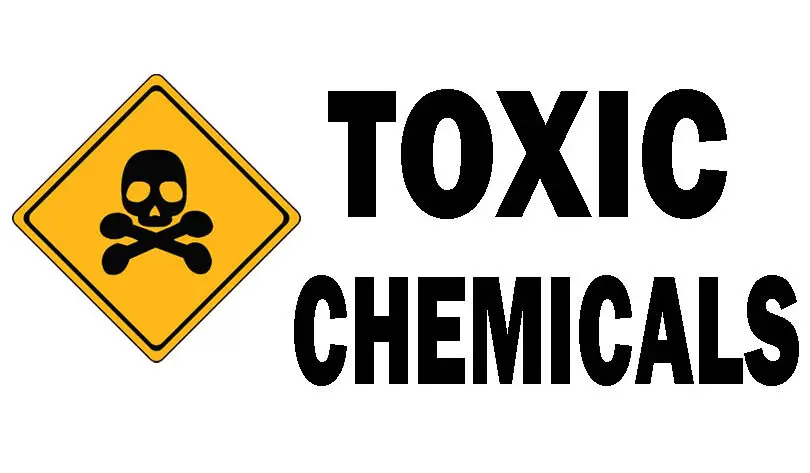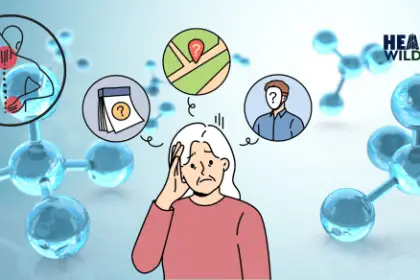Toxic chemicals can be found in a wide range of everyday products, from personal care items and household cleaners to building materials and food packaging. While many of these chemicals are used to enhance the performance or appearance of products, some of them can have harmful effects on human health and the environment.
To help raise awareness of the potential risks posed by these chemicals, we’ve compiled a list of 10 toxic chemicals that are commonly found in everyday products in the United States. By learning more about these chemicals and how to minimize exposure to them, consumers can take steps to protect themselves and their families from potential health risks.
- Bisphenol A (BPA): BPA is a chemical that is commonly used in plastic products such as water bottles, food containers, and baby bottles. It is also used in the lining of canned foods and drinks. BPA has been shown to disrupt hormones in the body, which can lead to a range of health problems such as obesity, diabetes, and cancer.
To minimize exposure to BPA, it’s best to avoid plastic containers with the recycling codes 3 or 7, as these often contain BPA. It’s also a good idea to avoid canned foods and drinks whenever possible and opt for fresh or frozen alternatives.
- Phthalates: Phthalates are a group of chemicals that are commonly used in plastic products such as vinyl flooring, shower curtains, and toys. They are also used in personal care products such as shampoo, lotion, and perfume. Phthalates have been linked to a range of health problems, including developmental and reproductive issues.
To minimize exposure to phthalates, it’s best to avoid products that contain “fragrance” or “perfume” on the ingredient list, as these often contain phthalates. It’s also a good idea to choose natural personal care products and avoid vinyl products whenever possible.
- Perfluorinated compounds (PFCs): PFCs are a group of chemicals that are used in a range of products, including non-stick cookware, stain-resistant fabrics, and food packaging. PFCs have been linked to a range of health problems, including cancer, reproductive and developmental issues, and immune system problems.
To minimize exposure to PFCs, it’s best to avoid non-stick cookware and choose stainless steel or cast iron alternatives. It’s also a good idea to choose natural fabrics and avoid products that are labeled as “stain-resistant” or “waterproof.”
- Flame retardants: Flame retardants are a group of chemicals that are used in a range of products, including furniture, electronics, and building materials. Flame retardants have been linked to a range of health problems, including cancer, reproductive and developmental issues, and thyroid problems.
To minimize exposure to flame retardants, it’s best to choose furniture that is made with natural materials and avoid products that are labeled as “flame retardant” or “meets flammability standards.” It’s also a good idea to avoid electronic products that are made with flame retardants whenever possible.
- Formaldehyde: Formaldehyde is a chemical that is used as a preservative in a range of products, including building materials and personal care products. Formaldehyde has been linked to a range of health problems, including cancer, respiratory issues, and allergic reactions.
To minimize exposure to formaldehyde, it’s best to choose natural building materials and avoid products that contain formaldehyde-releasing preservatives such as quaternium-15 and diazolidinyl urea.
- Triclosan: Triclosan is an antimicrobial agent that is commonly used in antibacterial soaps, toothpaste, and other personal care products. Triclosan has been linked to hormone disruption and may contribute to the development of birth defects.
- Lead: Lead is a heavy metal that was once widely used in a range of products, including paint, gasoline, and plumbing materials. Even though lead has been banned from many products, it can still be found in older homes and in imported products. Exposure to lead can cause developmental and behavioral problems, especially in children.
To minimize exposure to lead, it’s important to avoid products that may contain lead, such as old paint or plumbing fixtures. It’s also important to test your home for lead if it was built before 1978.
- Mercury: Mercury is a heavy metal that is found in a range of products, including thermometers, light bulbs, and dental fillings. Exposure to mercury can cause a range of health problems, including damage to the nervous system, kidneys, and immune system.
To minimize exposure to mercury, it’s best to avoid products that contain mercury whenever possible. If you do have products that contain mercury, such as old thermometers or light bulbs, be sure to dispose of them properly.
- Chlorine: Chlorine is a chemical that is commonly used to disinfect drinking water and swimming pools. However, exposure to chlorine can cause a range of health problems, including respiratory problems and skin irritation.
To minimize exposure to chlorine, it’s best to use water filters that remove chlorine from your drinking water. If you swim in a pool, consider using a natural alternative to chlorine, such as ozone or hydrogen peroxide. I highly recommend a drinking and shower water filtration system from Omica Organics by clicking here. Use the discount code: HealthyWildFree for 10% off your purchase. This is what I’ve been using for about 15 years now and the first time I used their shower filter I got out of the shower and touched my face and hair and thought, wow! it’s so much softer. Chlorine hardens the water and also hardens the inside of our bodies. Removing chlorine softens the water and is much healthier for us.
Recommended Reading: Are You Showering in Chemicals? Toxins? Carcinogens & Chlorine?
- Glyphosate: Glyphosate is a herbicide that is widely used in agriculture to kill weeds. It is also found in a range of food products, including cereal, bread, and snacks. Glyphosate has been linked to a range of health problems, including cancer, reproductive and developmental issues, and liver and kidney damage.
To minimize exposure to glyphosate, it’s best to choose organic foods whenever possible, as they are not treated with glyphosate. It’s also a good idea to wash fruits and vegetables thoroughly before eating them to remove any traces of glyphosate. I also recommend getting on a good activated charcoal supplement if you’ve eaten GMO foods that have been sprayed with glyphosphate. I recommend visiting Schizandu organics and getting their charcoal capsules. Just click ‘shop’ then ‘detox’ and grab them for 10% off at this link! This will bind to toxins and pull them out of your body!





